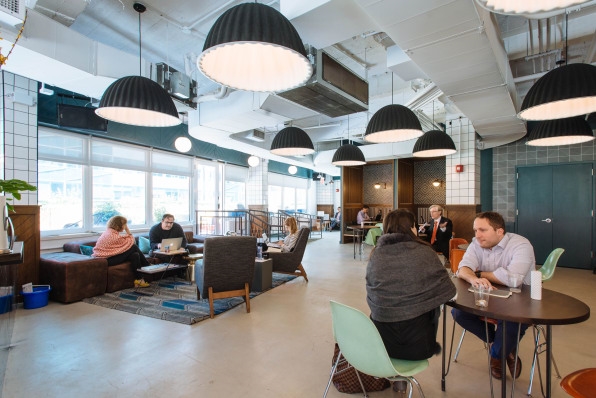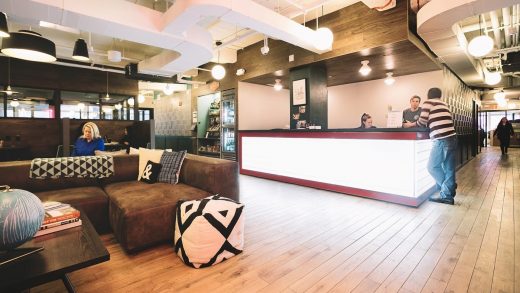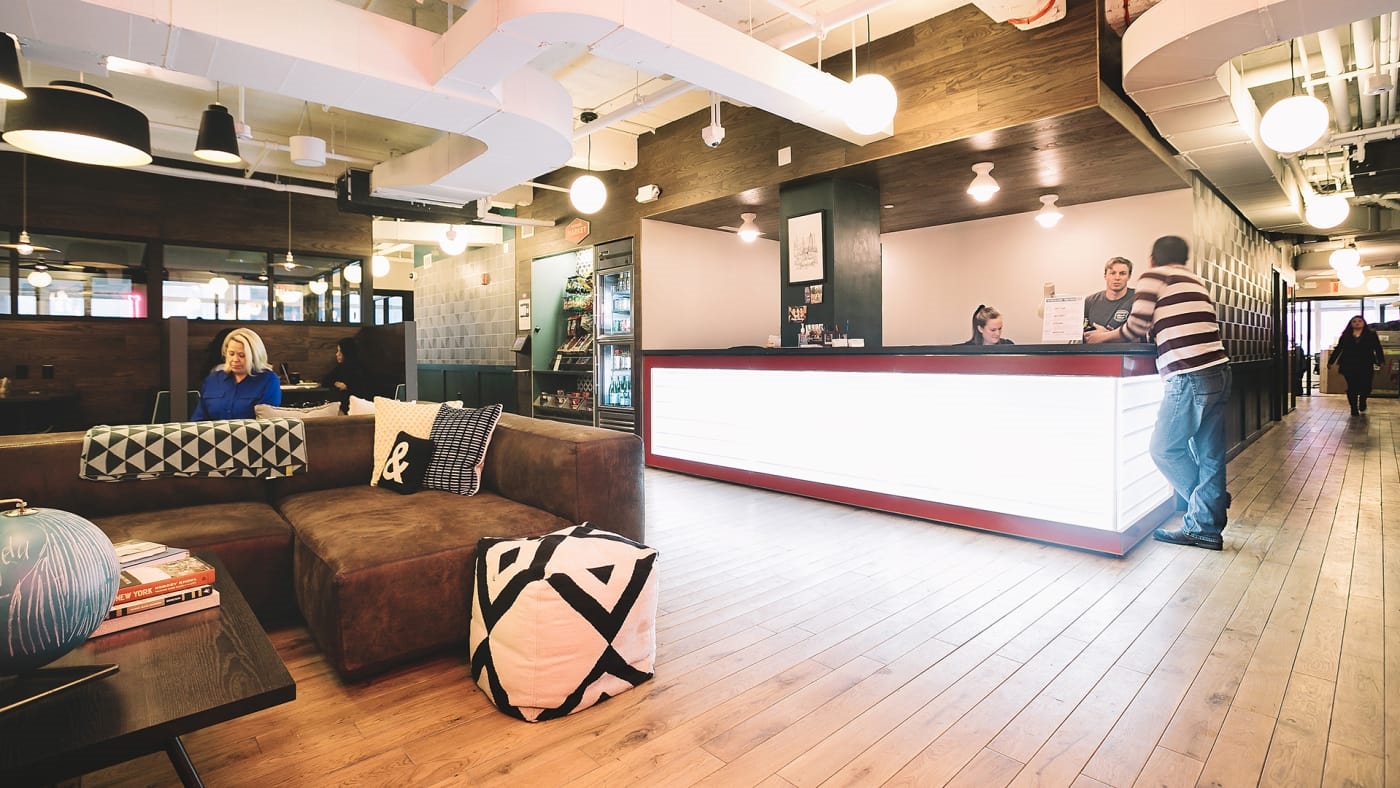WeWork is hiring, mentoring, and training 1,500 refugees
If you work at WeWork’s Times Square coworking office, you might see Mamadou Diallo stocking a coffee station or cleaning a conference room. He’s been on the job for a little over eight months. Two years ago, he was forced to flee his home country of Guinea as a political refugee, after his active membership in an opposition party. “I had to leave the country not to be killed by security forces,” he says. Diallo is one of dozens of refugees that WeWork hired last year; over the next few years, it will hire hundreds more.

The company, which has locations in 73 cities, began working with refugees in a grassroots pilot project in early 2017, when employees in New York reached out to a local office of the International Rescue Committee to invite the nonprofit’s refugee clients to start applying for jobs. “Six months later, we had hired over 50 employees, and the pilot was so successful it actually started organically growing to Chicago and Boston,” says Mo Al-Shawaf, WeWork’s director of partnerships and special projects. By November, the company had decided to set a larger goal: Over the next five years, it will hire a total of 1,500 refugees.
WeWork has 5,500 employees now but is quickly growing, and has a similar commitment to hire 1,500 veterans. The numbers are targets that the company was confident it could meet. At the time it made the commitment to hire refugees, WeWork CEO Adam Neumann said that it wasn’t a political statement. WeWork had just seen that the pilot worked well, and saw the program as a way to help address a global problem.
To date, the company has hired 150 refugees from more than 25 countries, including Syria, Afghanistan, Nigeria, and Tibet, in 10 cities in the U.S. and the U.K. Many, like Diallo, begin in WeWork’s “community team,” working in its office spaces. But the company is also beginning to test new programs to support advancement. In New York, a nonprofit called Inclusion–itself a WeWork member–is offering coding education. Diallo, who in Guinea had his own store selling cellphones and accessories, is now learning to code, and hoping to later move into a position in the WeWork’s tech team. Using the coding skills he’s gained to date, he also built a website for an education nonprofit in Guinea.
“We look at these [roles] as starting places,” says Al-Shawaf. “When you are starting over, we want to make sure that we can give you an opportunity and meet you where you are, but we also want to make sure that we’re investing in your growth and that you have those pathways to be able to grow within WeWork.” The company is also working with Upwardly Global, an organization that helps place high-skilled refugee talent, to fill roles in finance, IT, and operations.
WeWork members have been overwhelmingly supportive of the program, Al-Shawaf says. That’s in contrast to the experience of some other companies that have made large commitments to hire refugees; when Starbucks announced a plan in 2017 to hire 10,000 refugees globally by 2022, it faced a backlash from some customers (and praise from others). Chobani, similarly, was targeted with threats and a boycott from white nationalists for its own hiring of refugees. “Our community has been incredibly supportive and receptive,” says Al-Shawaf.

Some community members now play pickup soccer with the company’s refugee employees. The company hopes to encourage its 50,000 member companies to hire refugees themselves. WeWork hopes to inspire other companies to make similar commitments. “We’d love to be able to have this be a competitive race for talent that’s happening, both for refugee populations and nontraditional populations, everywhere,” he says.
The refugees that have been hired have been likely to stay on the job. At the moment, the retention rate is around 80%. The company has taken a few measures to help welcome new arrivals, including monthly lunches that introduce refugee workers to others on staff, and mentorship programs that pair refugees in the coding program with both technical and non-technical team members. It plans to use its space to host more English lessons. Diallo says that he has recommended the job to other refugees.
WeWork is now expanding their program in the U.K., where it will now partner with Breaking Barriers, an employment service for refugees, which will offer English classes in WeWork spaces across London. In Latin America, WeWork will begin hiring refugees in Brazil and Colombia, where an influx of people are fleeing from Venezuela.
As the company hires more refugees, it’s getting better at “identifying non-traditional experiences and skills and mapping them to current functions and roles,” Al-Shawaf says. The same is true as it hires veterans. “It’s helping us as a company to understand how do we bring in diverse talent everywhere, and really be able to cement what we’re building here, which has to be a welcoming community for everyone.”
(35)



